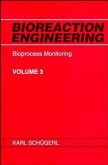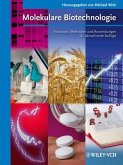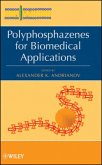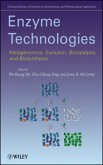This user-friendly and application-oriented overview draws on extensive literature and patent research, and is unique in its systematic structure for easy comparison. For this second edition every chapter has been rewritten, with each process updated and over 30 new ones added.
Das Buch präsentiert eine aktuelle Sammlung der wichtigsten industriell genutzten Biotransformationen.
Die Prozesse sind nach Enzymklassen geordnet und mit Hilfe eines einheitlichen und benutzerfreundlichen Schemas dargestellt. Der Leser findet alle Parameter, die für die Transformation selbst und den Prozeß von Bedeutung sind, sowie die wesentlichen zugehörigen Literaturzitate. Übersichtliche Ablaufschemata liegen für die meisten Prozesse vor. Ein ausführlicher Index, klassifiziert nach Substraten, Produkten, Substanzklassen, Enzymen und Firmen, führt schnell und direkt zur gesuchten Information.
Bei der Suche nach neuen Produkten in der chemischen Industrie bieten enzymatische und mikrobielle Transformationen ungeahnte und derzeit noch nicht in vollem Umfang genutzte Möglichkeiten: Die großen Vorteile der Biotransformation gegenüber der chemischen Synthese sind hohe Selektivitäten, weniger Nebenprodukte, komfortable Reaktionsbedingungen und umweltfreundliches Abbauverhalten.
Der Benutzer dieses Buches erhält einen kompakten und aktuellen Überblick über Biotransformationen, die im industriellen Maßstab durchgeführt werden, und profitiert vom systematischen Aufbau des Werkes und der Vergleichbarkeit der Daten.
Das Buch präsentiert eine aktuelle Sammlung der wichtigsten industriell genutzten Biotransformationen.
Die Prozesse sind nach Enzymklassen geordnet und mit Hilfe eines einheitlichen und benutzerfreundlichen Schemas dargestellt. Der Leser findet alle Parameter, die für die Transformation selbst und den Prozeß von Bedeutung sind, sowie die wesentlichen zugehörigen Literaturzitate. Übersichtliche Ablaufschemata liegen für die meisten Prozesse vor. Ein ausführlicher Index, klassifiziert nach Substraten, Produkten, Substanzklassen, Enzymen und Firmen, führt schnell und direkt zur gesuchten Information.
Bei der Suche nach neuen Produkten in der chemischen Industrie bieten enzymatische und mikrobielle Transformationen ungeahnte und derzeit noch nicht in vollem Umfang genutzte Möglichkeiten: Die großen Vorteile der Biotransformation gegenüber der chemischen Synthese sind hohe Selektivitäten, weniger Nebenprodukte, komfortable Reaktionsbedingungen und umweltfreundliches Abbauverhalten.
Der Benutzer dieses Buches erhält einen kompakten und aktuellen Überblick über Biotransformationen, die im industriellen Maßstab durchgeführt werden, und profitiert vom systematischen Aufbau des Werkes und der Vergleichbarkeit der Daten.
"...the quality makes the book highly advisable to any academic and industrial library of research groups dealing with biocatalysis or interested in expanding their synthetic toolbox." Engineering in Life Sciences
"...the book illustrates very clearly that biocatalysts make a significant contribution to industrial synthetic chemistry. The book is of high value for researchers in industry as well as academia and can provide lecturers very interesting examples for teaching." Advanced Synthesis & Catalysis
"...the book illustrates very clearly that biocatalysts make a significant contribution to industrial synthetic chemistry. The book is of high value for researchers in industry as well as academia and can provide lecturers very interesting examples for teaching." Advanced Synthesis & Catalysis
"Der seit einigen Jahren immer rascheren Entwicklung der weißen Biotechnologie trägt die Neuausgabe...Rechnung. Das erstmals vor fünf Jahren erschienene Werk hat eine umfassende Revision durchgemacht. Den Autoren ist es gelungen, den Hauptteil um gut 20% zu erweitern. Darin werden industriell verwendete und bekannte Enzyme, deren Einsatzgebiet sowie Prozessparameter beschrieben."
Chemiereport.at
Chemiereport.at





